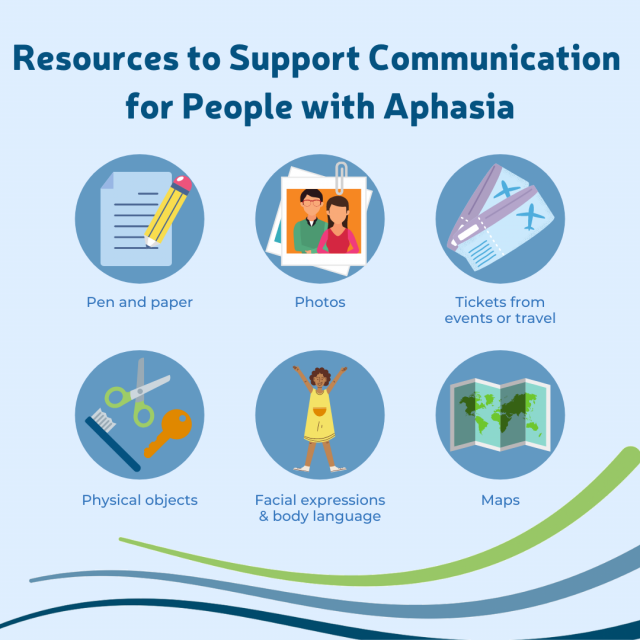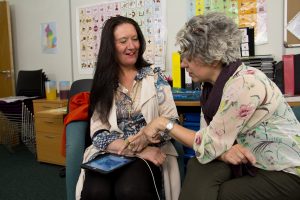June is Aphasia Awareness Month so we are pleased to announce the release of our new Ace Centre Learning Course, ‘Supporting Communication for People with Aphasia’. This introductory level course is aimed at families and professional supporting people with aphasia. We’ve written it to be accessible for people who are completely new to Augmentative and Alternative Communication (AAC) and navigating conversation with someone who has aphasia.
Over the past few years, we have found ourselves working more and more with people who have aphasia. There are lots of informal methods of AAC that can be used to help someone with aphasia when they are experiencing word-finding difficulties, for example:

- Using lists of written words to clarify a key word in a message
- Using pictures or other visual aids to provide a point of focus for the conversation
- Using drawings to give a clue as to what the message is about
- Using nonverbal forms of communication, such as facial expressions and gestures.
Often when an individual has aphasia, the conversation style between them and their familiar communication partners completely changes. They might need more support in getting their message across, or for the conversation to move at a slower pace than before. Without having the right supports in place, conversation can breakdown, with the conversation partners being left unable to understand each other fully. This in turn can lead to stress and frustration on both sides – something we want to avoid!
This course is designed to explain how aphasia can affect conversation, and to give lots of easy, practical tips on how to support someone with aphasia. By the end of the course, we hope that people will feel empowered to go away and try out some of the new strategies that they have learnt!
To find out more head to Supporting Communication for People with Aphasia
There is also a free leaflet you can print and download here

